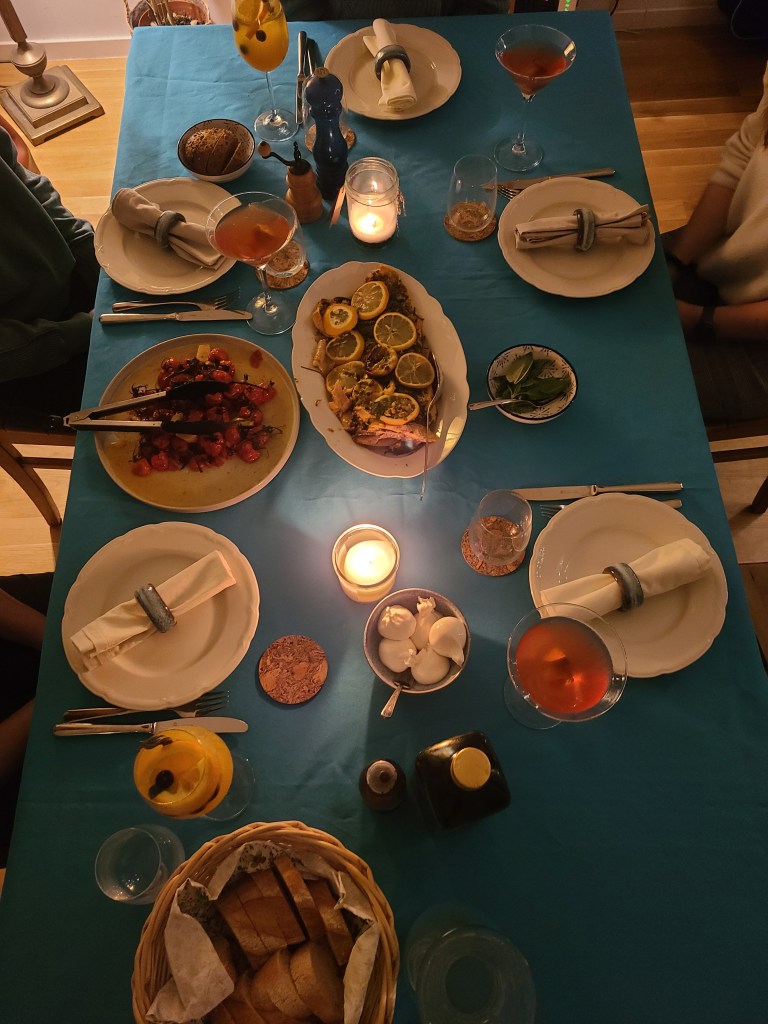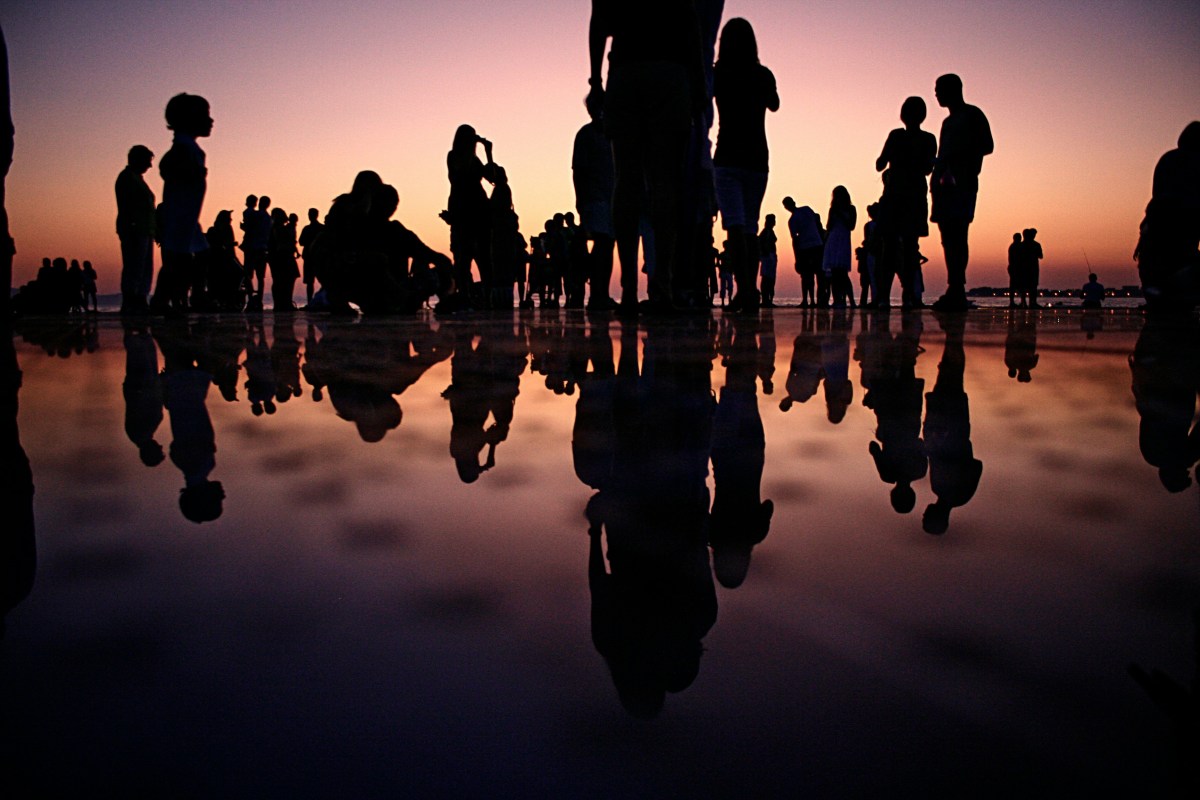On one of my post online-teaching evening walks in the last few weeks, I listened to Joshua Harris in conversation with Nadia Meli. He talked about this deconstruction process and compared it to a LEGO house being smashed by a basketball.
This made me wonder about my own journey into the wilderness, which I set out on more than six years ago.
It is difficult to put deconstruction into one coherent structure because while it involves loss and pain, it is very different from death and grief. Nevertheless, I have tried to reflect on my faith journey and tried to identify different phases of unlearning and relearning.
Not everyone experiences the same and not all experiences are equally intense, but maybe these thoughts might help you put some of your questions and emotions into perspective.
Surprise.
I would probably compare my deconstruction to a JENGA game. For years I had built up a stable tower of Christian doctrine, practices, routines and answers to everything. My faith felt unshakeable.
Nevertheless, many small events began to pull out buildings blocks from my tower. There were some questions and doubts I couldn’t answer, but I tried to push them to the side. I was really busy with finishing up my university degree, but I still took on a major role at a Christian conference working myself close to burnout. My faith failed in times of despair and tragedy.
The tower began to wobble, but I kept pushing and going. It was only a matter of time until the whole thing would come down. While I was leading worship at a camp I was really looking forward to, that last fatal block was pulled and my tower crumbled (here’s the extended version of this event, in case you’re interested).
I fell apart.
After so many years of doing, I finally had to stop and relearn to just be.
I had to uncover who I was and what my faith was actually made of.
Anger.
I spent some months grieving in the midst of the broken pieces of my faith. I just couldn’t believe that the security I had held onto for so long just didn’t work anymore. I thought it was a phase and would smooth itself out if I just waited. But it didn’t.
As I rummaged through the rubble, I became angry.
Angry at God for allowing this to happen and seeming so absent in this wilderness.
Angry at people in church for their prayers and bible verses instead of walking through my questions with me.
Angry at the system with its strict doctrines and its quick fixes. Instead of welcoming complexity, it offered dualistic simplicity. I knew I didn’t want to go back to simply rebuilding that same tower, I just couldn’t. But I also felt incredibly lost without it.
Angry at myself for being angry at people I loved, for feeling so disconnected from everyone and everything, for being so vulnerable.
Wilderness.
I began to turn over every block of that JENGA tower which once used to be my faith. Looked at them in more detail. How did it get there? Why did I really practice this or that?
I let go of every routine I ever had. All the things a “good Christian” was supposed to do. I expected things to change for the worse or some form of punishment for not reading the Bible or not praying – but nothing happened. I grew frustrated and incredibly lost. What was the point of doing all these things if they didn’t change my life at all?
I thought about throwing all of the blocks away since they seemed to be useless. Would I be left with nothing then? I couldn’t bear the thought that all my beliefs I had carried for 25 years were an illusion.
Encounter.
In the midst of frustration and desperation, I also felt a breath of fresh air. It was liberating to throw away buildings blocks that didn’t fit anymore and make space for something new.
As I walked further into the wilderness, I realized that I am not alone. The blocks of my tower have been cleared away and I can see the foundations. I met Emmanuel – the God who is here. I was finally honest with him about my questions and doubts.
I contended with him for answers. – He told me that faith actually happens in this tension between knowing and unknowing.
I just wanted to go back to ‘when everything was still alright.’ – He introduced me to facets about himself I had missed all these years.
I met people with similar thoughts and wide hearts – fellow wanderers who became kindred spirits. They helped me see the magic that’s out here in the wilderness. They opened my eyes to the depth that can be found in ancient truths and practices. I discovered God around my table, in food, on my evening walks, on the radio, in other people.
I began to hope that maybe, just maybe, my faith was still there – but it had taken on a different form.
Freedom.
The last six years were difficult. I gave myself permission to experience the process with all its emotions and allow myself time not to think for a while. To walk through uncertainty and let go of security. For someone who always needed all the answers (and bible verses to back them up), it was a completely new and liberating experience to say, “I don’t know (yet)”.
I have come to appreciate the ambiguity of believing, being and living. I am still learning to make my home here in the wilderness. A place of great freedom and beauty. A place of belly laughs, deep thoughts and honest faith. A place where God is always near.
I have fought and cried and despaired. But I have found peace.
As I reconstruct my JENGA tower, I realize that it might be time to excavate a few more of the foundations below the surface. Fellow wanderers tell me about their journeys and how they have intellectually deconstructed many of their old beliefs. They have made me aware that there’s still so much to discover out there.
So far, my deconstruction journey has been very experiential. I needed to let go of rituals and practices and try out new forms instead. For this process it was helpful not to go into all kinds of deep theological debates and arguments. I guess I wasn’t really ready for it back then and I am glad I wasn’t. It would’ve been too much to lose form and content at the same time, I’m not sure I’d still believe today.
But now, I have found new freedoms and I am more okay with ambiguity and not knowing all the answers. So I might be ready to enter a new phase of reconstruction.
Understanding the intersection of faith and culture.
Touching the big concepts of faith and maybe killing some darlings along the way.
Clearing away some of the theological clouds hiding the divine character behind them.
Finding God over and over again.
Wherever you are on this journey: Your thoughts matter. Your emotions are valid. It takes time, but you are not alone.
One of the greatest joys in this reconstruction process has been to meet so many interesting people and their stories of faith. I am now collecting them in a podcast called strich;punkt to share thoughts on unlearning and relearning God together. If you speak German, you can find it on Spotify or Apple Podcasts!






